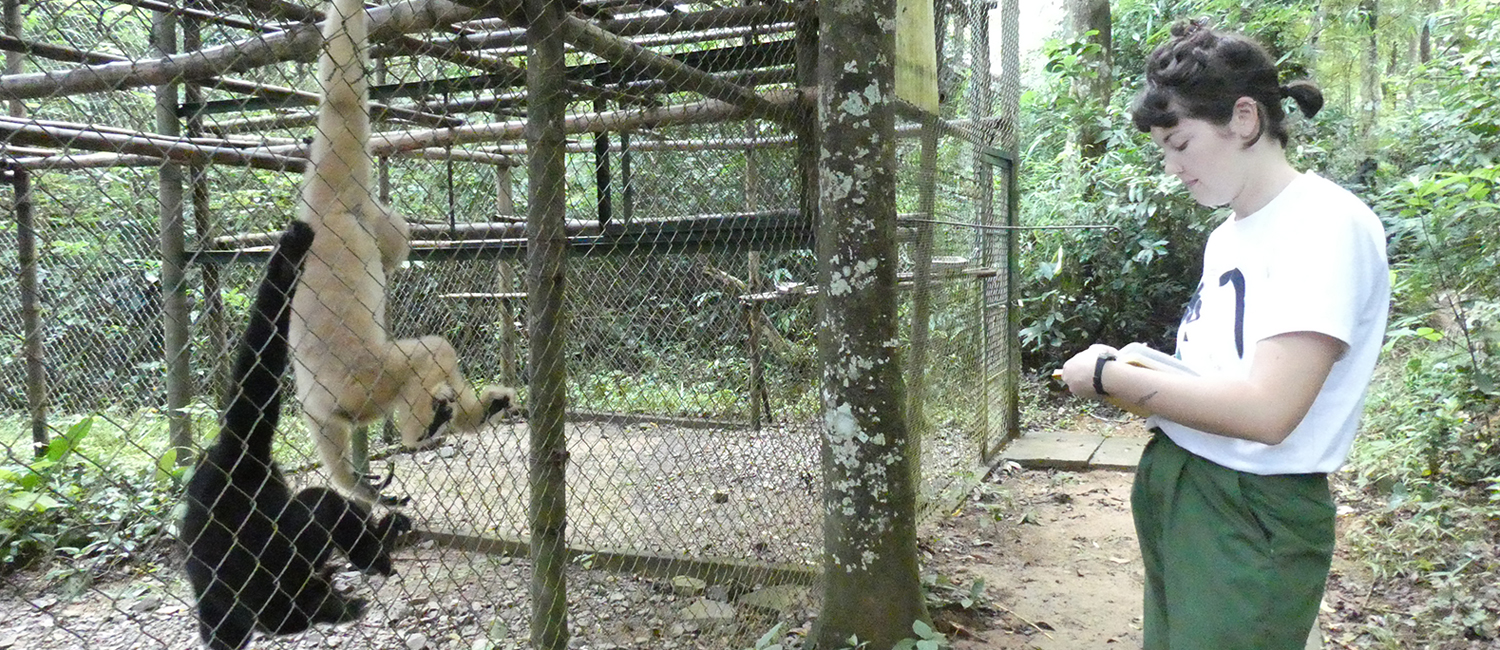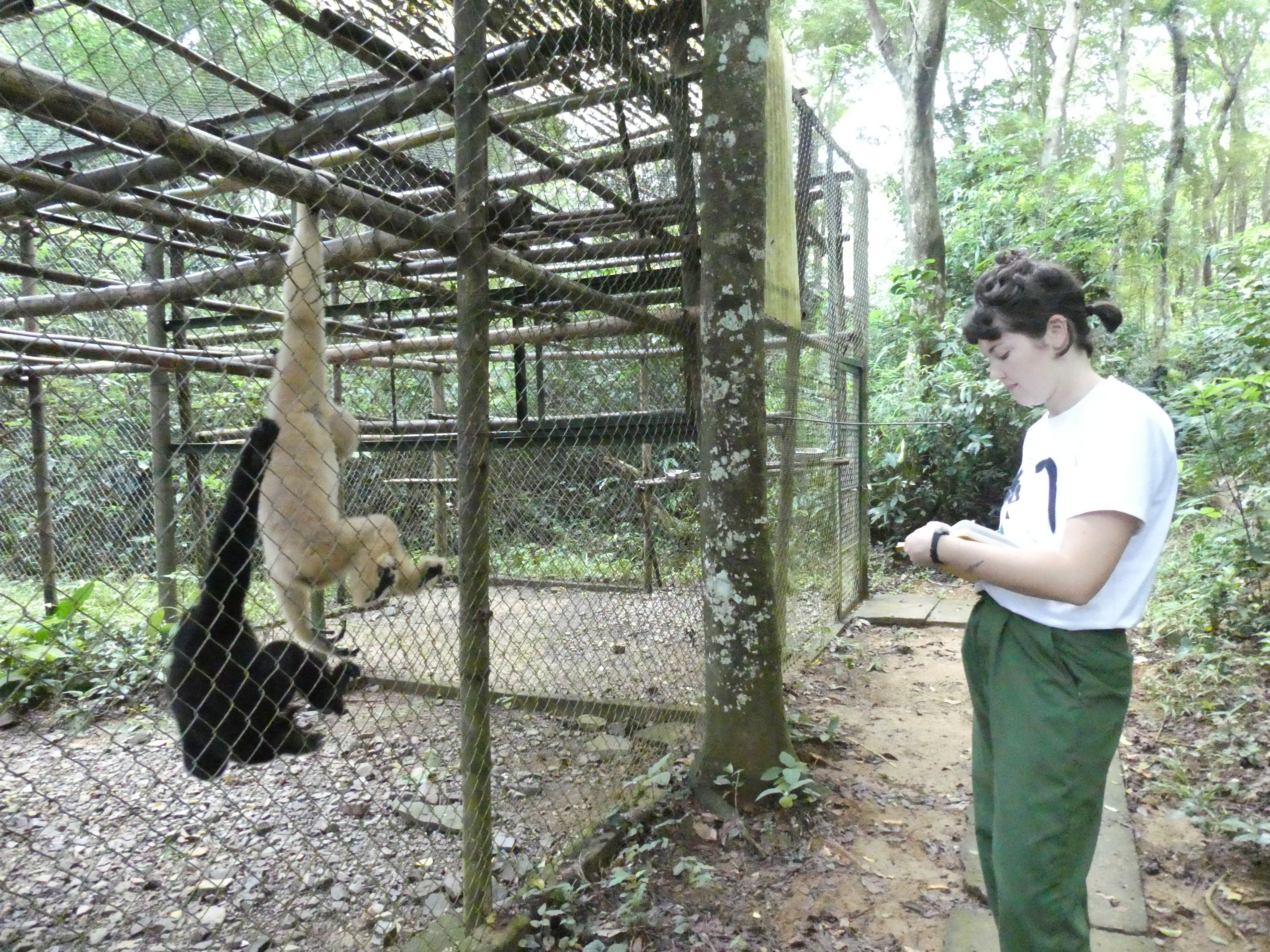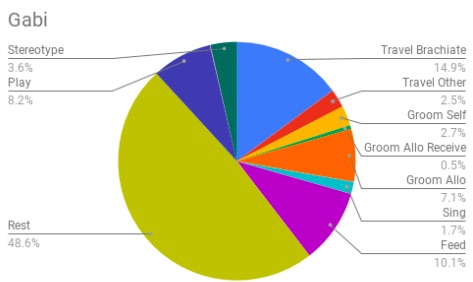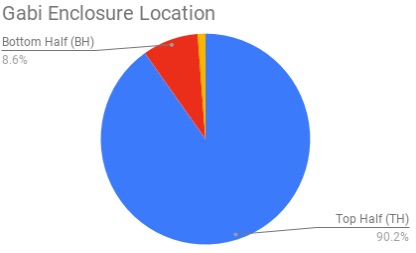(Visited 559 times, 1 visits today)


admin• Tháng Mười Một 7, 2018• Behind the Scenes at EPRC, English
When you think about the health of a primate, you think about sickness, right? Physical health. Well, behavioral health is just as important! How a primate is behaving can give a glimpse of their mental and emotional state, as well as providing clues about whether or not they are sick or in pain.
Studying behavior is for us the only way to guess what they are thinking or feeling and help provide answers to questions like: how do they form relationships with each other? Do they prefer one food over another? Are they happy and acting like they would do in the wild?

Kaylen is a researcher from the United States studying gibbon behavior at the EPRC. She observed them for long periods of time and recorded their behaviors using scan sampling: she would watch one family of gibbons for 20 minutes at a time and « scan » them every 30 seconds. For each scan she would write down what they were doing, gathering a list of various behaviors into what is called an ethogram.
Once she had collected enough scans, she counted up each behavior she saw to make charts like this:


This knowledge can help us to understand more about the way primates see the world, and to improve their lives in captivity. For example, it is important for a healthy gibbon to spend most of the time at the top half of the enclosure, because in the wild they live in the very tops of trees. It is also important that when they move around, it is mostly by brachiation (the swinging we saw in the video). If two gibbons living together groom a lot, it is a good sign that they get along well. A healthy gibbon is expected to sing, as well!
One thing we don’t want to see is a lot of stereotypic behavior. This is abnormal, repetitive behavior. It is usually performed because an individual is stressed, depressed, bored, or feeling a lack of control or choice. It is a sign that something in their environment or routine needs to change.
Having a better idea of how the gibbons are behaving at the center, we can make more informed choices about enrichment, diet, and plans for their future!

Established in 1993, EPRC is a not for profit project dedicated to the rescue, rehabilitation, breeding, research and conservation of Vietnam’s endangered and critically endangered primate species.
© Endangered Primate Rescue Center 2020
Website by MINIMUMMEANS